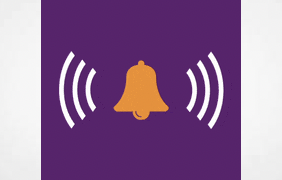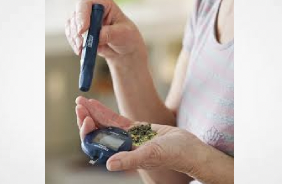CBD, short for cannabidiol, has received interest within the realm of diabetes management due to its capability to control blood sugar, reduce infection, and alleviate nerve aches related to the circumstance. While studies are ongoing, it’s crucial to recognize the present-day position of scientific expertise and exercise caution in decoding the findings.
Studies were done to find the effects of CBD.
Studies analyzing the effect of CBD on various issues had to be tested on animals like Mice and rats to proceed with human practice. The analysis as a whole was very promising. There are people who have already been using CBD for various issues, but scientific support can be a complete game changer when it comes to tackling various issues using CBD. However, extrapolating those outcomes to people calls for careful consideration due to variations in body structure and responses between species.
Reduced hyperglycemia:
Hyperglycemia refers to excessive blood sugar ranges, an indicator of diabetes. In the research, it was seen there was a reduced cerebral blood drift, and CBD was observed to be associated with decreased blood sugar levels. This shows that CBD can also have a regulatory impact on glucose metabolism, which is important in diabetes control to save you from complications related to excessive blood sugar. There are different ways in which CBD is taken, but considering premium CBD flower for this purpose is much more popular than other ways of consuming CBD.
Improved lipid profile:
Diabetes is regularly observed with the aid of dyslipidemia, characterized by ordinary lipid levels together with accelerated cholesterol and triglycerides. CBD was created to reduce cholesterol and “bad fats,” indicating an ability to enhance lipid profiles in diabetic conditions. Maintaining a wholesome lipid profile is vital in decreasing the threat of cardiovascular complications in individuals with diabetes.
Enhanced insulin manufacturing:
Insulin is a hormone that plays a key role in regulating blood sugar degrees by facilitating the uptake of glucose into cells. The observation showed that CBD exhibited the potential to boost insulin production. This is important because insulin deficiency or resistance is a primary feature of diabetes, and treatments that enhance insulin motion can assist in improving glycemic control.
Alleviated neuropathic ache:
Neuropathic pain is a common complication of diabetes, characterized by persistent pain, tingling, and numbness, often affecting the extremities, which include the fingers and feet. CBD verified anti-inflammatory effects and reduced nerve aches in research, especially in regions prone to neuropathy. This indicates that CBD can also have a function in managing neuropathic pain related to diabetes.
Reduced diabetes danger:
Some studies have recommended that CBD may additionally have a preventive impact against the development of diabetes. This potential preventive movement can be attributed to CBD’s anti-inflammatory and metabolic consequences, which may assist in preserving insulin sensitivity and glucose homeostasis, reducing the hazard of developing diabetes.
Promoted metabolic fitness:
Research has determined that CBD oil facilitates the conversion of white fat into metabolically energetic brown fats. Brown fats are present in our body mainly for energy expenditure and thermogenesis, and their activation can probably improve metabolic fitness by enhancing glucose usage and better weight control. This shows the ability of CBD to promote metabolic health, which is essential in diabetes control to save you from complications associated with weight problems and metabolic syndrome.
It’s essential to say that while those findings are promising, further studies, particularly in human medical trials, are necessary to validate the efficacy and safety of CBD in treating diabetes. Additionally, man or woman responses to CBD may vary, and its use needs to usually be mentioned with healthcare experts, especially considering potential interactions with medicinal drugs and the need for best-controlled CBD products.
The difference in effects of CBD and THC
It’s important to distinguish between CBD and THC, the psychoactive compound in hashish. While CBD can also provide blessings in diabetes management, THC’s results can fluctuate. For instance, an examination showed that at the same time as CBD did not extensively enhance blood sugar and lipid stages in people with type 2 diabetes, a particular variety of THC did enhance insulin resistance and intestine hormone degrees. This has popularized the use of pre-rolled CBD joint, premium CBD flowers, and other CBD-based products. When it comes to diabetes, it is better to go with CBD than THC in some cases.
Despite these benefits, a warning is warranted when considering CBD for diabetes control. The lack of FDA regulation in many products raises issues about their satisfaction and consistency. Only Epidiolex, a prescription CBD drug for epilepsy, is FDA-authorized, highlighting the need for vigilance in choosing CBD merchandise. Hence, it’s better that you go with genuine and authorized places that have good-quality CBD products to always be safe.
Moreover, CBD consumption can result in Some minor side effects, including fatigue, drowsiness, diarrhea, and dry mouth. It may interact with medicines like blood thinners, emphasizing the significance of consulting a healthcare professional earlier than incorporating CBD into diabetes treatment regimens.
Final takeaway-
In conclusion, while initial studies indicate promising outcomes for CBD in diabetes management, in addition There is still a lot of research needed in this area. Hence it would always be beneficial if you take an expert’s advice and use CBD products bought from good and genuine stores. Only then can you have complete faith in CBD for diabetes management.


















